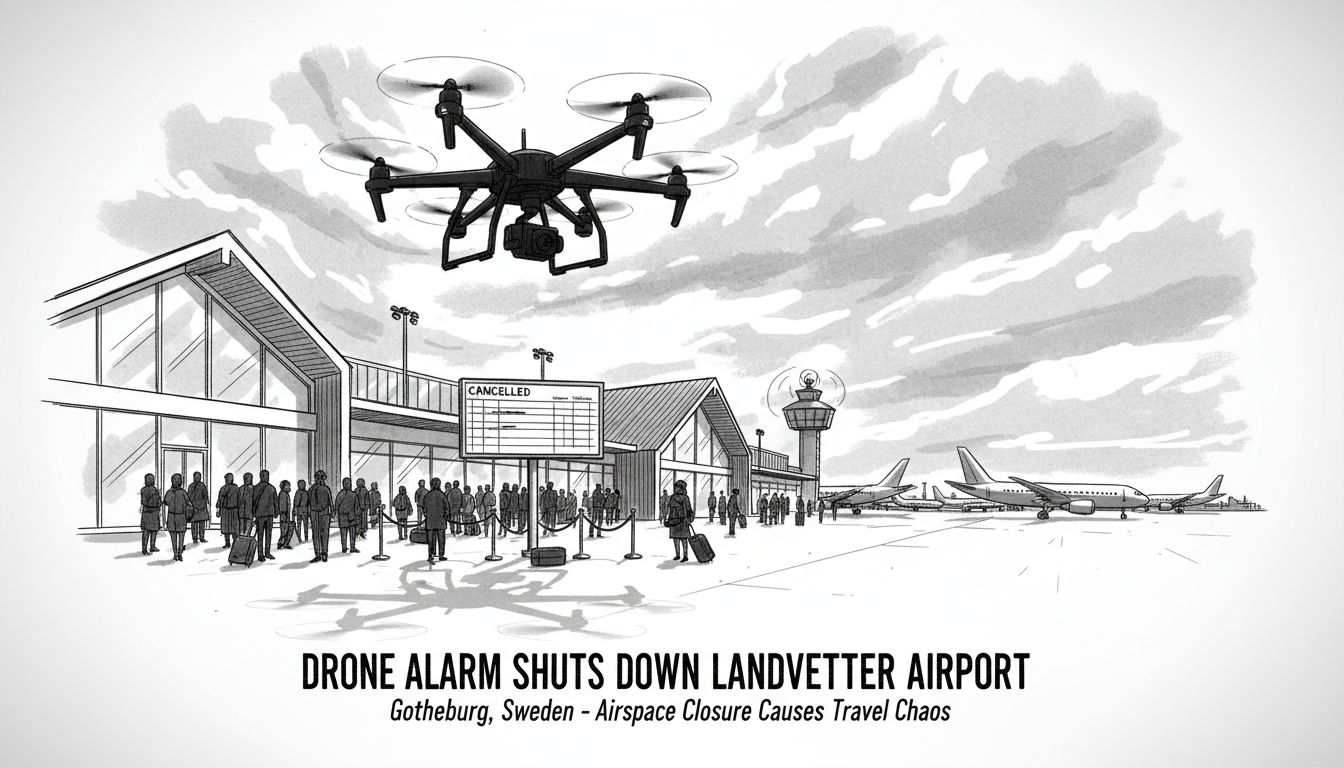A drone alarm forced authorities to close airspace over Landvetter Airport in Gothenburg. The sudden closure stranded passengers and disrupted flight schedules. Travelers expressed frustration as airlines canceled departures without clear timelines for reopening.
Robin Babinich was among those affected when his Frankfurt flight got canceled. He described the chaotic scene at the terminal. Airport staff announced a drone incident but provided little additional information. Passengers received conflicting updates about when normal operations might resume.
Sweden maintains strict drone regulations near critical infrastructure. The country prohibits drone flights within 5 kilometers of airports without special permission. Swedish authorities treat unauthorized drone sightings as serious security threats. They immediately halt air traffic until confirming the airspace is safe.
This incident follows similar drone disruptions at Scandinavian airports in recent years. Stockholm Arlanda experienced multiple closures due to drone sightings. Copenhagen Airport faced parallel security scares. These events highlight growing concerns about drone security across Nordic aviation hubs.
Airport security teams deployed detection systems to locate the unauthorized drone. Swedish police launched an investigation into the incident. They seek to identify the operator and determine whether the flight was intentional or accidental.
The closure caused ripple effects across European flight schedules. Landvetter serves as a major Nordic transport hub with connections throughout Europe. Delayed passengers faced accommodation challenges as airlines struggled to rebook flights.
Aviation experts note that drone incidents create substantial economic impacts. Each hour of airport closure costs airlines and airports thousands of dollars. Passenger inconvenience compounds these direct financial losses.
Sweden's transport authorities face increasing pressure to develop better drone detection technology. Current systems sometimes struggle to distinguish between birds and small drones. False alarms remain a persistent challenge for airport operators.
International travelers should monitor flight status when traveling through Swedish airports. Drone-related closures typically last several hours but can extend longer if the threat persists. Airlines generally rebook affected passengers on later flights once operations resume.
The incident raises questions about balancing drone innovation with aviation security. Sweden has embraced commercial drone applications while maintaining strict safety protocols. This balance becomes increasingly difficult as drone ownership grows nationwide.

